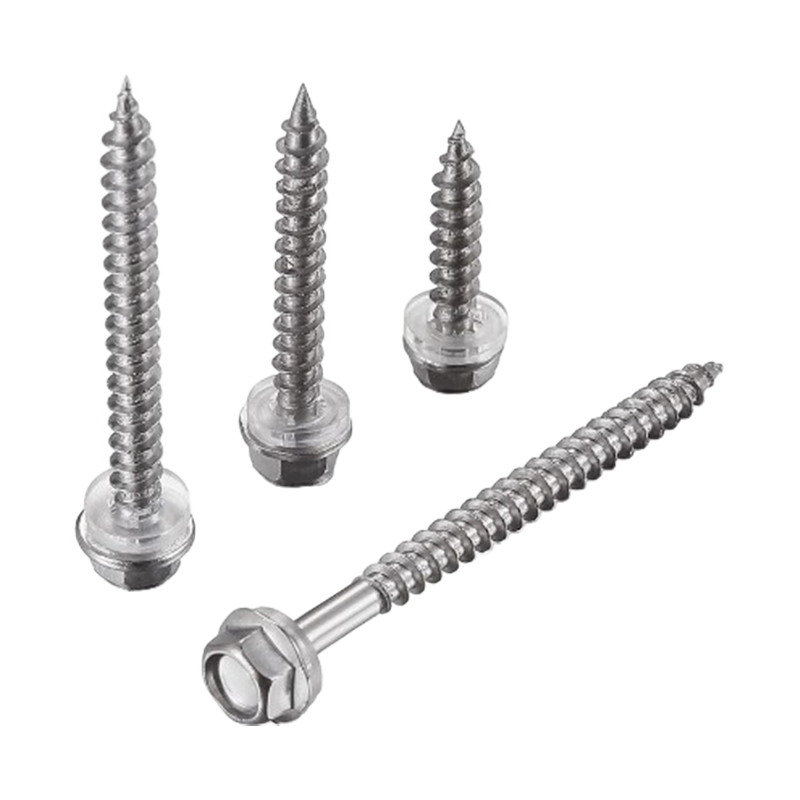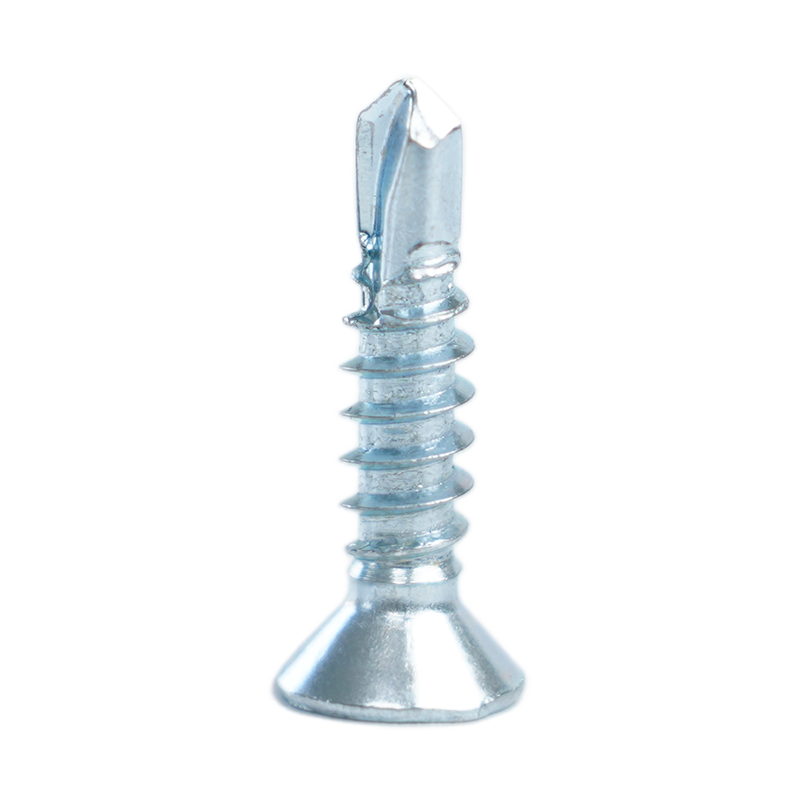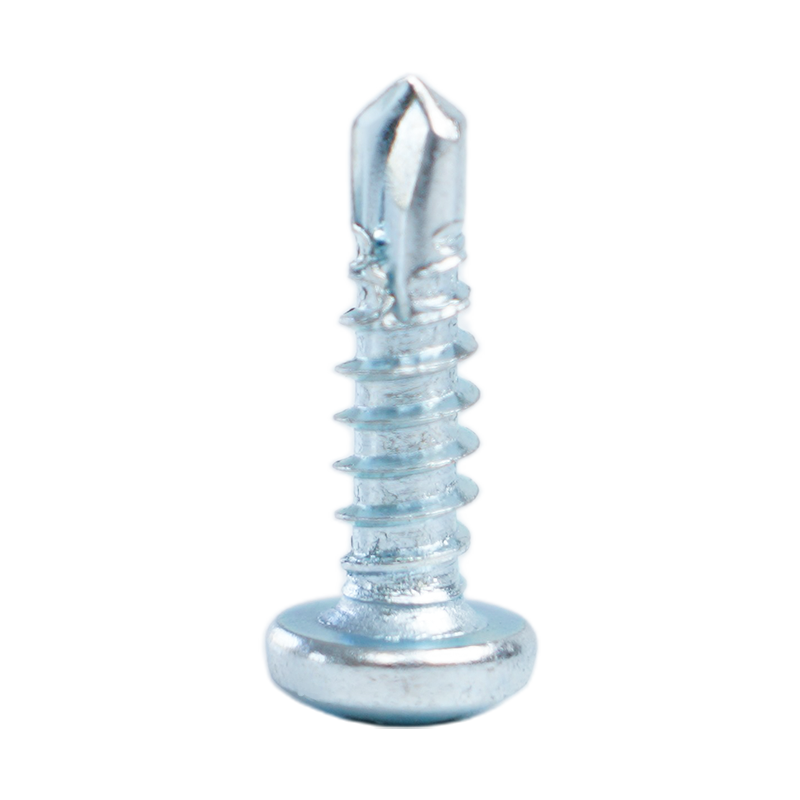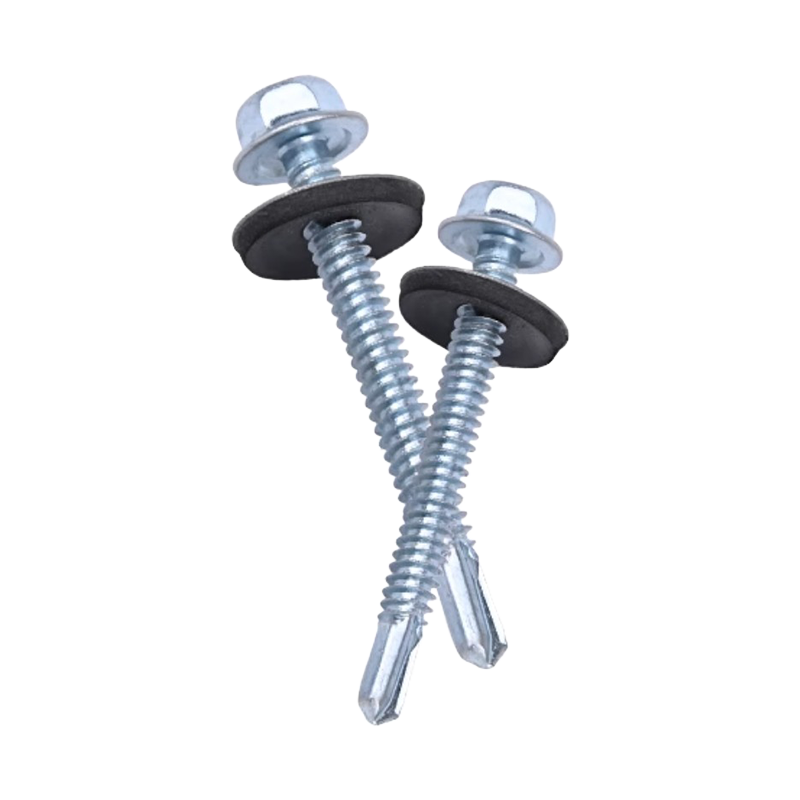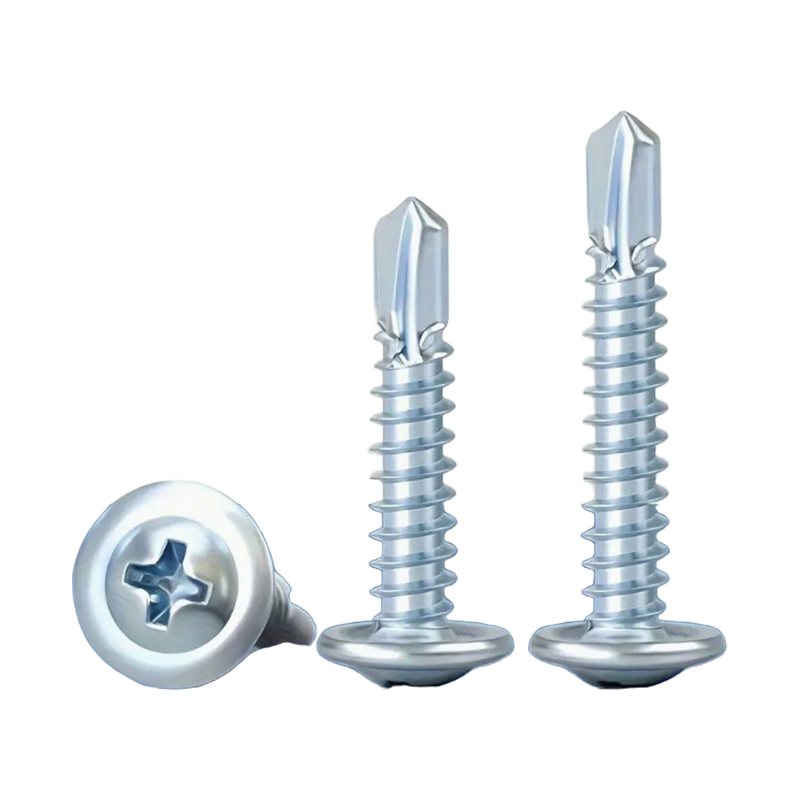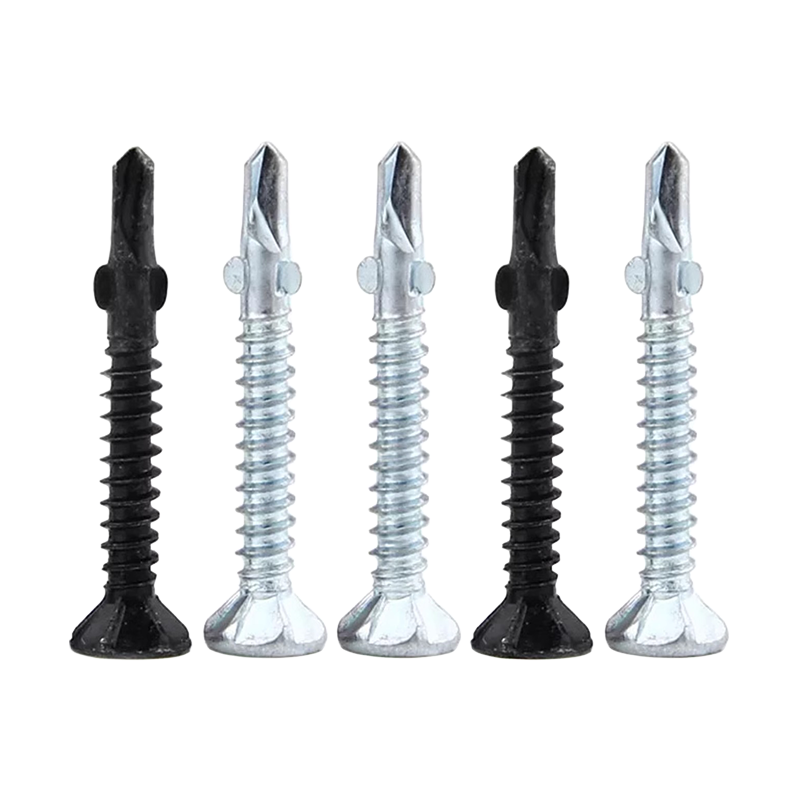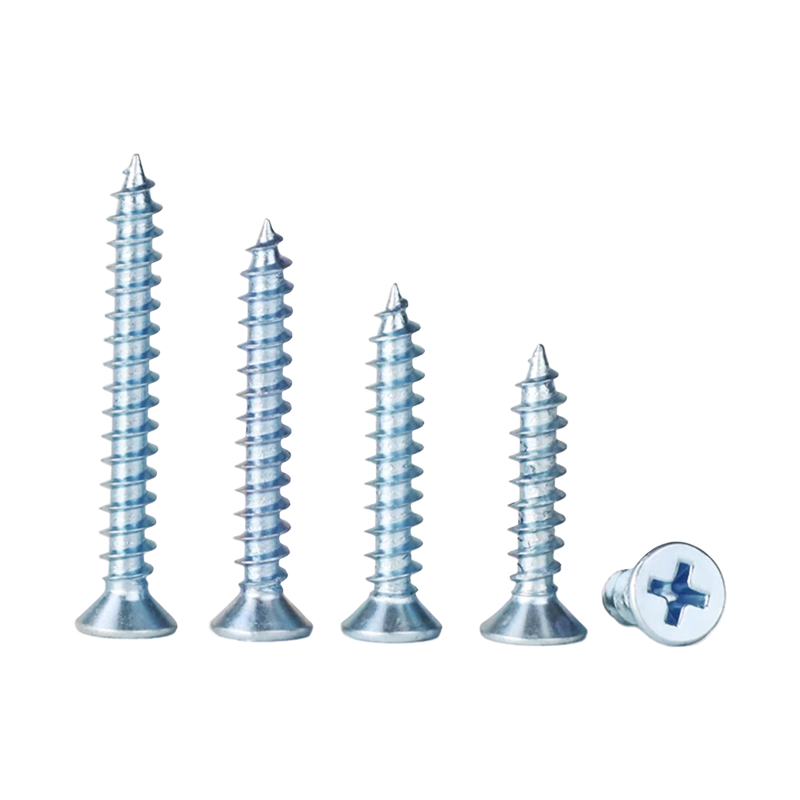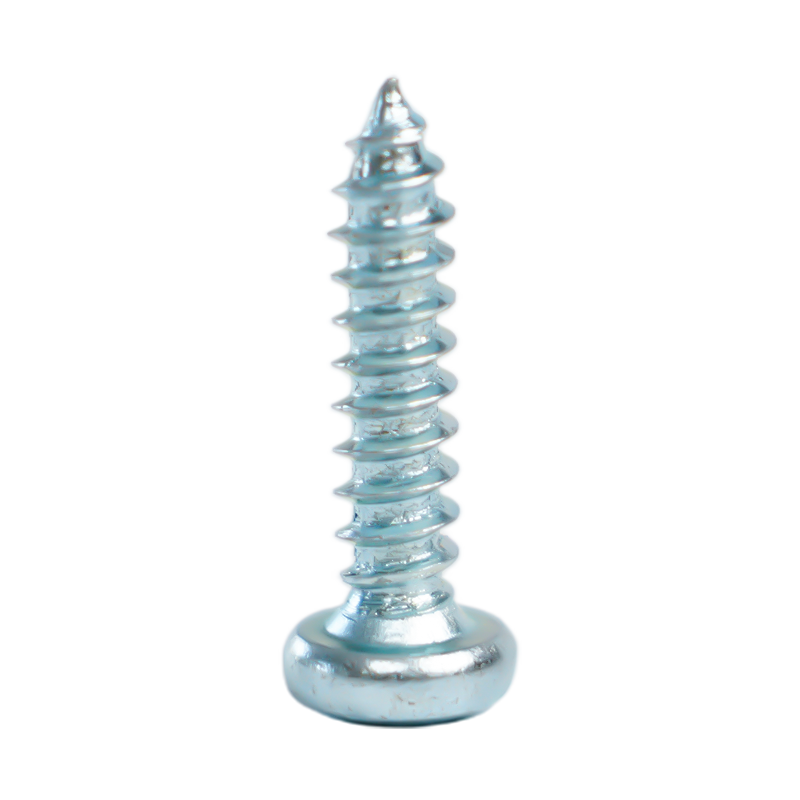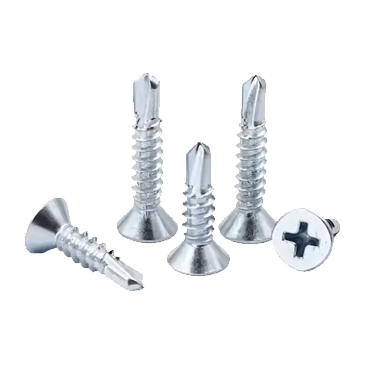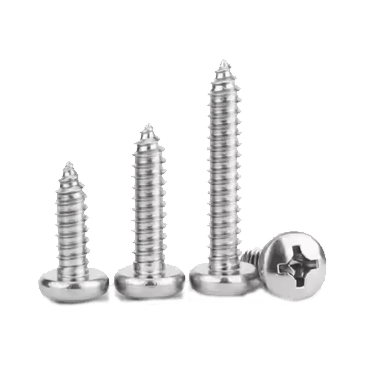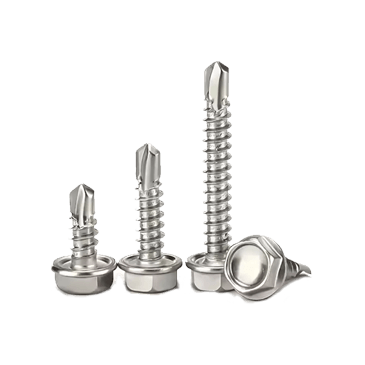Understanding Your Project Requirements
Before embarking on the journey to find a reliable stainless steel screw manufacturer, it is crucial to have a clear understanding of your project's specific requirements. This foundational step will guide your selection process and ensure that the manufacturer you choose can meet your exact needs.
Defining Technical Specifications
The technical specifications of stainless steel screws vary significantly based on their intended application. Factors such as screw diameter, length, thread type, head style, and drive type must be carefully considered. For instance, machine screws with fine threads are suitable for precision applications, while self-tapping screws with coarse threads are better for materials like wood or plastic. Additionally, the grade of stainless steel plays a critical role in determining the screw's corrosion resistance, strength, and overall durability. Common grades include 304 stainless steel, which offers good corrosion resistance for general purposes, and 316 stainless steel, which provides superior resistance to chlorides and acidic environments, making it ideal for marine or chemical applications.
Assessing Quantity and Quality Standards
The scale of your project directly impacts the type of manufacturer you should approach. Small-scale projects or prototypes may require a manufacturer willing to handle low-volume orders, whereas large-scale industrial projects need a producer with high-volume capacity and efficient supply chain management. Equally important are the quality standards and certifications that the manufacturer adheres to. Look for manufacturers that comply with international standards such as ISO 9001 for quality management systems, and product-specific standards like ASTM or DIN, which ensure the screws meet rigorous performance and safety criteria. Establishing clear quality expectations upfront will help you avoid potential issues related to product failure or non-compliance with industry regulations.
Key Factors in Selecting a Manufacturer
Selecting the right manufacturer involves evaluating several critical factors that go beyond basic product specifications. These elements determine not only the quality of the screws but also the reliability of the partnership.
Manufacturing Capabilities and Expertise
A manufacturer's capabilities and expertise are paramount in ensuring they can deliver products that meet your expectations. Inquire about their production processes, such as cold heading, thread rolling, and heat treatment, which are essential for creating high-quality screws. Advanced manufacturers may also offer secondary operations like passivation to enhance corrosion resistance or custom packaging for specific logistical needs. Furthermore, expertise in your industry—whether it's construction, automotive, aerospace, or medical devices—can be a significant advantage. An experienced manufacturer will understand the unique challenges and regulatory requirements of your field, providing valuable insights and solutions tailored to your application.
Supply Chain Reliability and Lead Times
The reliability of a manufacturer's supply chain directly affects your project's timeline and overall success. Evaluate their raw material sourcing practices to ensure consistent quality and avoid disruptions. Manufacturers with strong relationships with material suppliers are better equipped to handle fluctuations in demand or material shortages. Additionally, consider their production lead times and flexibility in accommodating urgent orders or changes in specifications. A transparent communication channel regarding order status, potential delays, and proactive problem-solving is essential for maintaining a smooth workflow and avoiding costly project setbacks.
Evaluating Manufacturer Credentials and Reviews
Thoroughly evaluating a manufacturer's credentials and customer feedback is a critical step in the selection process. This helps verify their claims and provides insight into their reputation and reliability.
Certifications and Quality Assurance
Certifications serve as independent validation of a manufacturer's commitment to quality and consistency. Look for certifications such as ISO 9001, which demonstrates a robust quality management system, and industry-specific certifications like AS9100 for aerospace or ISO 13485 for medical devices. Additionally, product certifications from organizations like the American Society for Testing and Materials (ASTM) or the International Organization for Standardization (ISO) indicate that the screws meet defined performance standards. Beyond certifications, inquire about their internal quality control measures, such as dimensional checks, material testing, and batch traceability, which ensure every screw conforms to specifications.
Customer Testimonials and Case Studies
Customer testimonials and case studies offer real-world evidence of a manufacturer's performance and reliability. Seek out reviews from clients in similar industries or with comparable project scopes to gauge their satisfaction levels. Pay attention to feedback regarding product quality, on-time delivery, customer service responsiveness, and problem-resolution efficiency. Case studies, in particular, can provide detailed insights into how the manufacturer handled complex projects, overcame challenges, and delivered value to their clients. This information is invaluable in building confidence in your potential partner and anticipating how they might perform for your project.
Cost Considerations and Value Analysis
While cost is a significant factor in any procurement decision, it should be balanced against the value offered by the manufacturer. A thorough cost analysis helps avoid unexpected expenses and ensures long-term satisfaction.
Understanding Pricing Structures
The pricing of stainless steel screws is influenced by various factors, including material costs, manufacturing complexity, order volume, and additional services. For example, stainless steel screw manufacturer price per kg can vary based on the grade of stainless steel used; 316 stainless steel typically commands a higher price than 304 due to its enhanced corrosion resistance. Similarly, custom specifications such as special coatings or non-standard dimensions may incur additional costs. It's essential to request detailed quotations that break down these elements, allowing for an accurate comparison between manufacturers. Be wary of prices that seem unusually low, as they may indicate compromises in material quality or manufacturing standards, which could lead to product failure and higher long-term costs.
Price Comparison Table
The following table illustrates a general comparison of pricing factors among different types of manufacturers. Note that these are illustrative examples and actual prices may vary based on specific project requirements and market conditions.
| Manufacturer Type | Price Range (per kg) | Typical Minimum Order Quantity (MOQ) | Common Additional Costs |
|---|---|---|---|
| Large-scale Integrated Producer | $XX - $XX | High (e.g., 1000 kg+) | Tooling fees, custom packaging |
| Specialist Custom Manufacturer | $XX - $XX | Low to Medium (e.g., 100 kg+) | Design engineering, prototype development |
| Standard Product Supplier | $XX - $XX | Low (e.g., 50 kg+) | Shipping, handling fees |
As shown in the table, large-scale producers often offer lower per-unit costs for high-volume orders but may have less flexibility for customizations. In contrast, specialist custom manufacturers might have higher base prices but provide greater value through tailored solutions and technical support.
Total Cost of Ownership (TCO)
Beyond the initial purchase price, consider the Total Cost of Ownership (TCO), which includes all expenses associated with the screws throughout their lifecycle. This encompasses factors such as durability, maintenance requirements, and potential costs related to failures. For instance, screws with superior corrosion resistance may have a higher upfront cost but can prevent expensive replacements or repairs in corrosive environments. Similarly, manufacturers offering reliable logistics and inventory management services can reduce hidden costs like storage, handling, and emergency shipping. Evaluating TCO provides a more comprehensive understanding of the long-term value offered by a manufacturer, ensuring that your investment delivers optimal performance and reliability.
Navigating the Sourcing Process
Effectively navigating the sourcing process involves strategic steps to identify, evaluate, and engage with potential manufacturers. This systematic approach increases the likelihood of establishing a successful and lasting partnership.
Identifying Potential Manufacturers
The first step in the sourcing process is to create a list of potential manufacturers. Utilize industry directories, trade associations, and professional networks to gather initial candidates. Online platforms specializing in industrial supplies can also be valuable resources, but ensure they provide verified information about the manufacturers. Additionally, attending industry trade shows or exhibitions allows for direct interaction with manufacturers, assessment of their product quality, and discussion of your specific needs. During this stage, focus on manufacturers that align with your project's technical requirements, volume needs, and quality standards. For example, if your project involves stainless steel self-tapping screw manufacturer options, prioritize those with proven expertise in producing self-tapping screws, as they require specific manufacturing techniques to ensure proper thread formation and driving performance.
Requesting and Comparing Quotations
Once you have a shortlist of potential manufacturers, the next step is to request detailed quotations. Provide each manufacturer with a clear and comprehensive request for quotation (RFQ) that includes all technical specifications, quality requirements, order quantity, and delivery expectations. This ensures that the quotes you receive are based on the same parameters, facilitating an accurate comparison. When reviewing quotations, look beyond the unit price and consider factors such as payment terms, lead times, warranty policies, and after-sales support. It is also advisable to request samples from your top candidates to physically evaluate the product quality, dimensional accuracy, and finish. This hands-on assessment can reveal differences that may not be apparent from specifications alone.
Specialized Screw Types and Their Applications
Stainless steel screws come in a wide variety of types, each designed for specific applications and performance characteristics. Understanding these specialized screws helps in selecting the right manufacturer who can produce the exact type needed for your project.
Self-Tapping Screws for Efficient Fastening
Self-tapping screws are designed to tap their own thread as they are driven into the material, eliminating the need for a pre-tapped hole. This makes them highly efficient for applications in metals, plastics, and wood. When looking for a stainless steel self-tapping screw manufacturer, it is important to consider their expertise in producing screws with sharp, hard threads and precise points that can effectively cut into the material without breaking. These screws are commonly used in sheet metal assembly, automotive trim, and electrical enclosures. The manufacturer should be able to provide variations such as thread-forming screws for plastics, which displace material without removing it, and thread-cutting screws for metals, which have a cutting action similar to a tap.
High-Strength Screws for Demanding Environments
For applications subjected to high loads, vibrations, or extreme temperatures, high-strength stainless steel screws are essential. These screws are often made from martensitic stainless steel grades like 410 or 420, which can be heat-treated to achieve higher tensile strength. A manufacturer specializing in high strength stainless steel screw manufacturer products should have advanced heat treatment facilities and rigorous testing protocols to ensure consistent mechanical properties. Applications include heavy machinery, structural components, and automotive systems where failure is not an option. The manufacturer should be able to provide certification of mechanical properties, such as tensile strength and hardness, and demonstrate experience in serving industries with similar demanding requirements.
Custom-Designed Screws for Unique Applications
Some projects require screws with non-standard dimensions, unique head styles, or special features to fit specific design constraints. In such cases, partnering with a manufacturer that offers custom stainless steel screw manufacturer services is crucial. These manufacturers have the engineering capability to design and produce screws tailored to your exact specifications. The process typically involves collaborative design review, prototype development, and testing to ensure the custom screw performs as intended. Whether you need a screw with an unusual drive type for security purposes, a specific thread pitch for precision alignment, or a combination of materials for hybrid applications, a custom manufacturer can provide a solution that off-the-shelf products cannot.
Industry-Specific Manufacturing Considerations
Different industries have unique requirements and standards for stainless steel screws. A manufacturer's experience and capability in serving your specific industry can significantly impact the success of your project.
Marine and Coastal Applications
In marine and coastal environments, screws are constantly exposed to saltwater, humidity, and other corrosive elements. Therefore, selecting a manufacturer with expertise in producing screws for these conditions is critical. Look for a marine grade stainless steel screw manufacturer that primarily uses 316 stainless steel, which contains molybdenum for enhanced resistance to pitting and crevice corrosion. The manufacturing process should include strict quality controls to avoid surface imperfections that could initiate corrosion. Additionally, processes like passivation, which removes free iron from the surface, and electroplating with additional coatings can further improve corrosion resistance. A reputable marine-grade manufacturer will understand the importance of these details and provide products that meet or exceed industry standards for marine fasteners.
Food and Pharmaceutical Industry Standards
The food and pharmaceutical industries require screws that meet stringent hygiene and safety standards. Screws used in processing equipment, packaging machinery, or direct product contact must be easy to clean, resistant to corrosive cleaning agents, and non-contaminating. Manufacturers serving these industries often use specific stainless steel grades like 304 or 316, which are known for their cleanability and corrosion resistance. Furthermore, the surface finish is critical; a smooth, polished surface without cracks or crevices prevents bacterial growth and facilitates cleaning. These manufacturers should adhere to standards such as FDA regulations or EHEDG guidelines and be able to provide documentation certifying the material composition and surface treatments used.
Building a Long-Term Partnership
Establishing a relationship with a stainless steel screw manufacturer that extends beyond a single transaction can yield significant benefits in terms of reliability, cost savings, and continuous improvement.
Communication and Collaboration
Effective communication is the cornerstone of a successful long-term partnership. Choose a manufacturer that values transparent and proactive communication, providing regular updates on order status, production challenges, and market changes that might affect your supply. A collaborative approach, where the manufacturer is willing to discuss design improvements, cost-saving alternatives, or value engineering, can lead to optimized products and processes. Establishing clear points of contact and preferred communication channels ensures that issues can be resolved quickly and efficiently, minimizing disruptions to your project.
Continuous Improvement and Support
A manufacturer committed to continuous improvement demonstrates a long-term focus on quality and customer satisfaction. Inquire about their processes for incorporating customer feedback, investing in new technology, and training their staff. Manufacturers that actively seek to improve their products and services are more likely to adapt to your evolving needs and industry trends. Additionally, reliable after-sales support, such as technical assistance, warranty claims handling, and inventory management services, adds significant value to the partnership. By building a relationship based on mutual trust and shared goals, you can create a resilient supply chain that supports the ongoing success of your projects.

 +86-15052135118
+86-15052135118 

 Español
Español
 Get In Touch
Get In Touch


